News
Details Behind the Tesla Model S Hack
Two researchers broke into the software of a Tesla recently. But there is good news behind the Tesla Model S hack. A fix was sent to all cars within days.
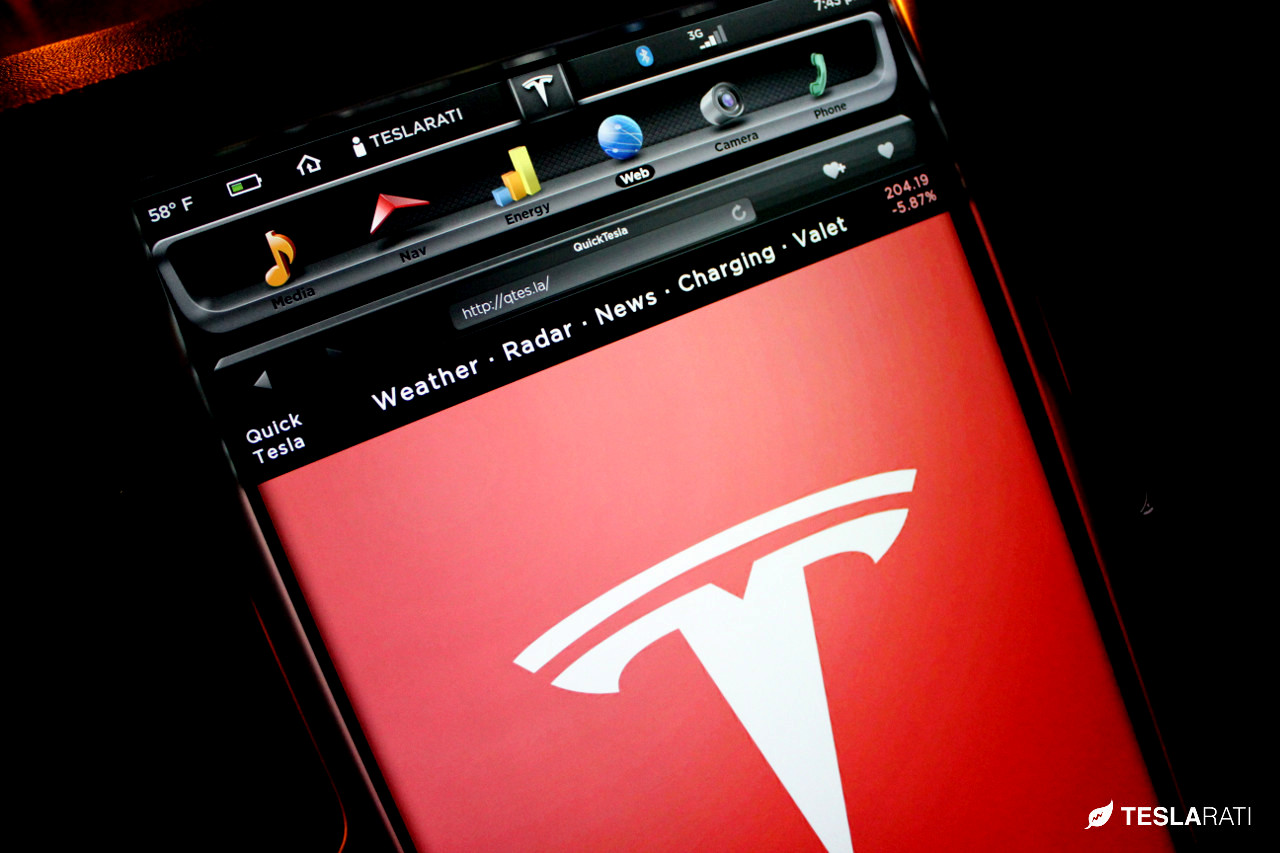
Last week, Marc Rogers, of content delivery network CloudFlare, and Lookout Mobile Security co-founder Kevin Mahaffey completed a digital break-in of a Tesla. But here’s the good news behind the Tesla Model S hack. Tesla quickly released an over-the-air firmware update, to every Model S ever manufactured, that would resolve the security holes uncovered by Rogers and Mahaffey.
The Tesla Hack
Rogers and Mahaffey had to dismantle the dashboard to gain access to an ethernet port. From there, they were able to connect directly to the CAN bus, the controller area network across which car data is sent and received.
After that, they chained together four separate vulnerabilities, first to gain access to the infotainment systems and then the touchscreen used to control vehicle functions. That let them make the speedometer disappear, alter the suspension, unlock the doors and the trunk, and make the windows go up and down. They were also able to shut down the car’s electric motor below 5 mph.
Above that speed, the dashboard screens would go blank but the car would shift into neutral, giving the driver time to find a safe place to bring the car to a stop. “Ironically, that means it’s the only car that can protect itself against a successful cyber attack,” Rogers noted.
Tesla’s Response
“Tesla has taken a number of different measures to address the effects of all six vulnerabilities reported by Lookout. And, we continue to develop further ways to harden our systems, informed by ongoing discussions with the security research community, as well as our own internal analysis. The update has been made available to all Model S customers through an OTA update. We will deploy this update to all vehicles by Thursday,” a spokesperson said in a statement e-mailed to Forbes.
Other auto manufacturers are following in Tesla’s footsteps by making internet updates available for their upcoming line of vehicles, but are starting years behind Tesla.
Rogers and Mahaffey say they also found two potential browser vulnerabilities that they exposed but did not exploit. Those flaws, resident in the WebKit browser engine, could possibly have enabled remote attacks, but Tesla’s new firmware update has resolved those issues as well.
Tesla CTO Toasts Hackers
While Rogers and Mahaffey were explaining their hacks at Def Con 23 last Friday, Tesla CTO J. B. Straubel made a surprise appearance to offer them a toast and personally thank them for their work. J.B. presented the duo with “Challenge Coins,” which will Tesla will be giving to any researcher who finds a serious security hole in their vehicles.
Proud to earn challenge coins, which are given to @TeslaMotors‘s best bounty hunters. pic.twitter.com/1YfRrsOypw
— Lookout (@Lookout) August 7, 2015
Tesla's approach to distribute vulnerability and feature updates through over-the-air technology, similar to how one updates software on their mobile device, clearly puts it steps ahead of other automakers.
Chris Evans, who previously worked on Google’s elite Project Zero research team, became head of digital security at Tesla this past week. He was involved in the software update that the company has now sent to all customers. “This gives me really high hopes with Tesla going forward," says Mahaffey. “I would like to see what they’ve done as a reference model for others. I think they’ve got lessons to learn but they’re 75 per cent there."
As cars acquire more digital capability, the opportunities for outside interference either by "white hat" hackers or those bent on doing actual harm will increase. Tesla, though, has the most robust program for identifying and resolving digital security issues of any manufacturer. That commitment should give every Tesla owner and prospective owner a full measure of confidence in the integrity of Tesla automobiles, now and in the future.

News
Tesla contract with Baltimore paused after city ‘decided to go in a different direction’
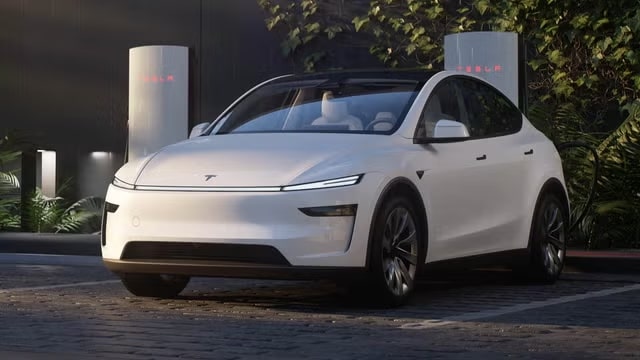
Last Summer, Tesla landed a $5 million contract with the City of Baltimore for a fleet of electric vehicles for the local government. However, Mayor Brandon Scott decided to pause that investment in September after the City “decided to go in a different direction.”
This is according to John Riggin, spokesman for the city’s Department of General Services. Riggin confirmed that the contract with Tesla has not been fulfilled, and Baltimore is going with other options for the time being:
“No Tesla units have been ordered, and none are in the City’s fleet.”
It now seems that the contract, which was set to be run until 2027, is not really a typical “contract” in the sense of the word. Riggin said the city is not obligated to spend the money for vehicles from Tesla, and that it is evaluating offerings from a variety of OEMs, including Ford and General Motors.
Tesla chosen over Ford for $5 million Baltimore City EV fleet
Riggin said the value of the contract is more of a ceiling and not necessarily an obligation to spend the committed amount in full.
The contract has not been canceled officially, but City Comptroller Bill Henry said to the Baltimore Sun that it has gone back to purchasing Mustang Mach-Es from Ford, the vehicle that was snubbed for Teslas back in July when things were initially decided.
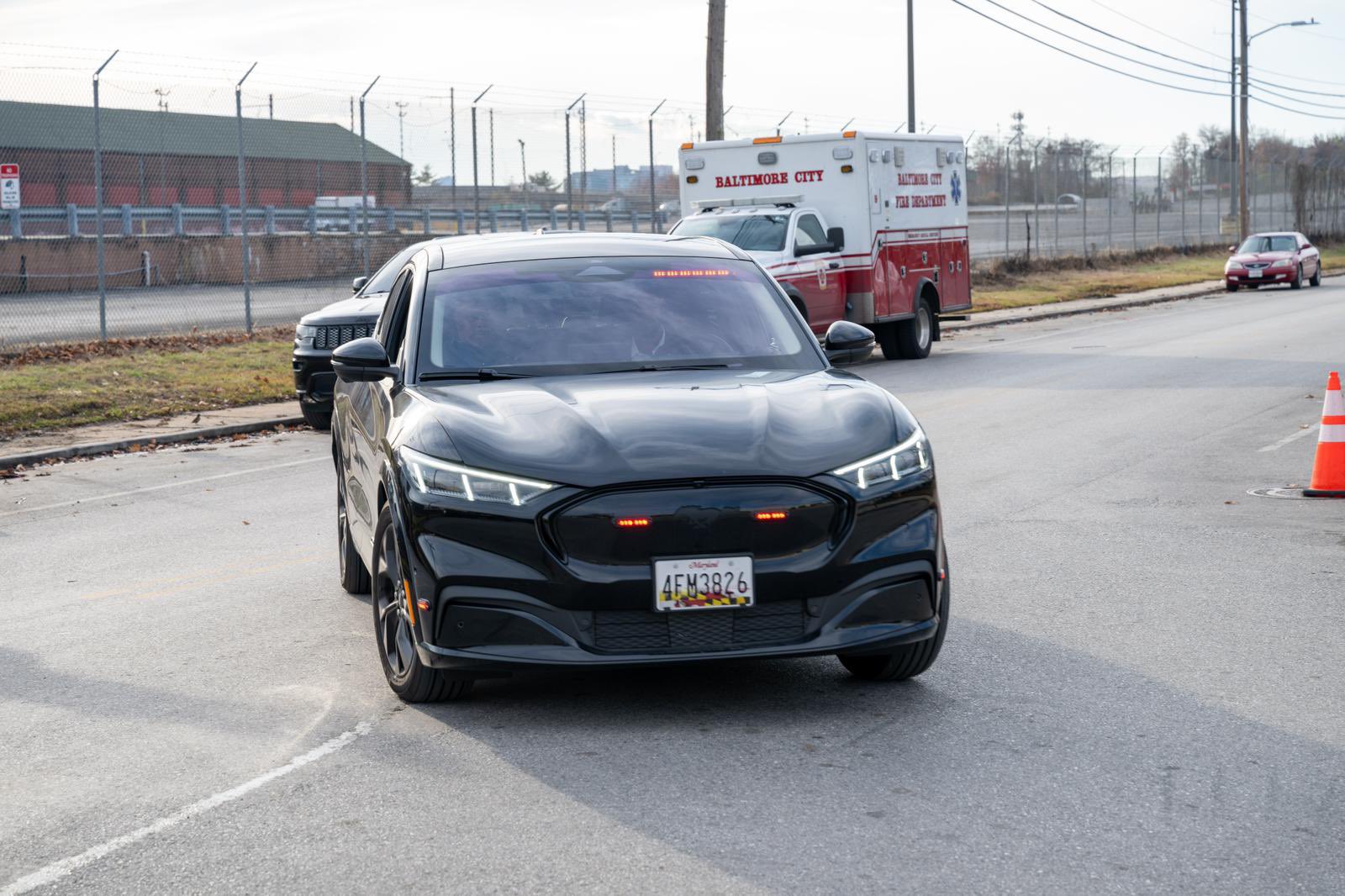
The timing of the pause is interesting, and it does not seem to have anything to do with CEO Elon Musk’s direct involvement with the Trump administration, although the EV maker’s frontman was already vocalizing his distaste for the Democratic White House run by the Biden Administration.
Baltimore has a citywide goal of achieving carbon neutrality by 2045, and has used EVs in its fleet for several years to reach that goal. It plans to electrify the city vehicle fleet by 2030.
News
Tesla at risk of 95% crash, claims billionaire hedge fund manager
Tesla stock has been extremely volatile as of late amidst souring sentiments over CEO Elon Musk’s political leanings.
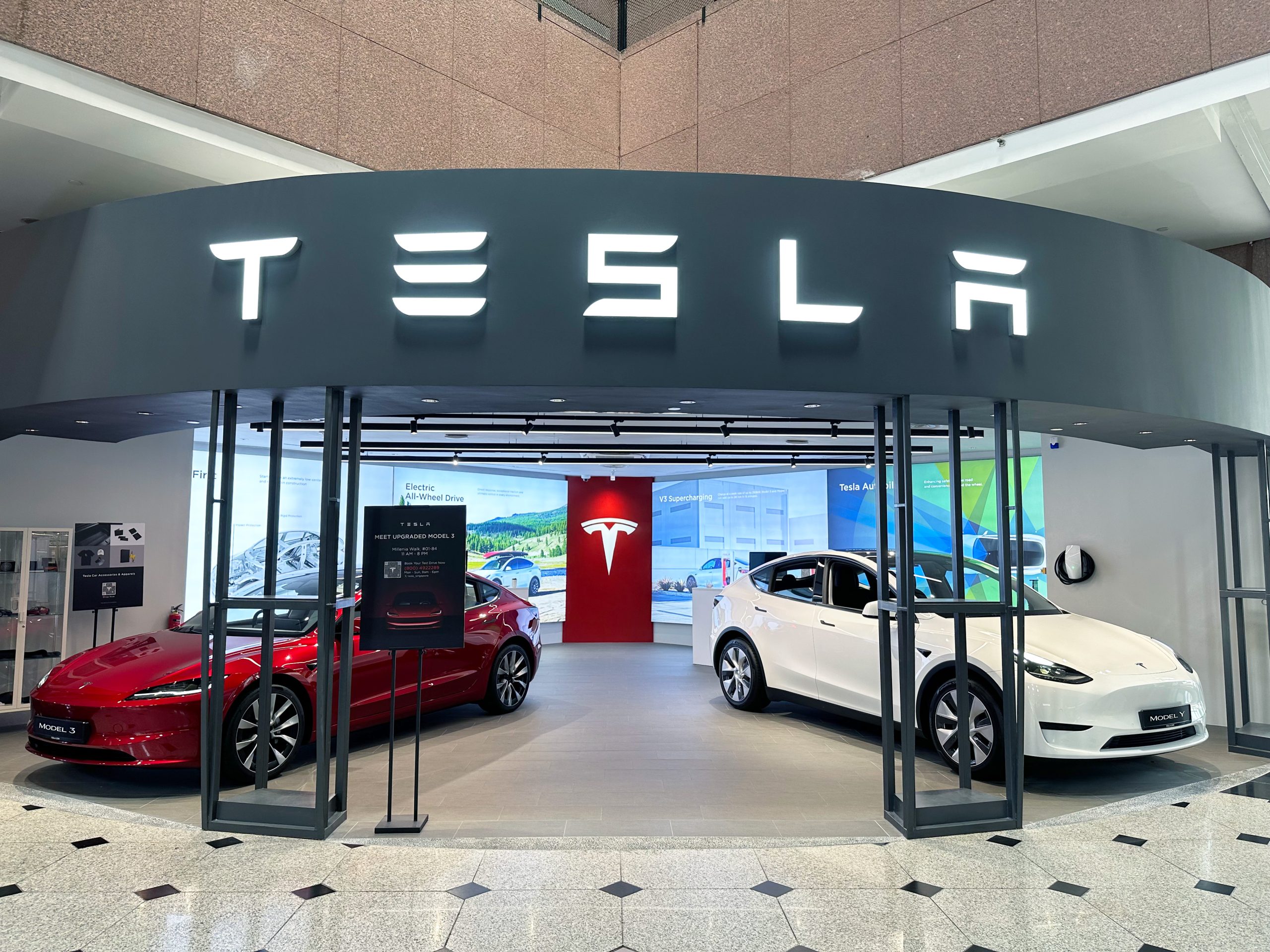
Christer Gardell, a Swedish billionaire and hedge fund manager, issued a stark warning about Tesla stock and what he believes are bubbles in the stock market. The billionaire’s insights about Tesla were shared during an interview with EFN.
Tesla stock has been extremely volatile as of late amidst controversies and souring sentiments over CEO Elon Musk’s increasingly political leanings.
Alleged Tesla (TSLA) risks
Gardell did not mince words about Tesla, stating that the electric vehicle maker’s valuation could drop as much as 95% due to the “circus” surrounding its CEO.
“Tesla, especially now with the whole Musk circus going on everywhere, is probably the most expensive stock on the global stock exchanges right now. It could go down 95% – and maybe it should go down 95%,” he said in the interview.
The Swedish billionaire sees Tesla as fundamentally a car company. Thus, he does not understand why the market has given the EV maker such a high value. For context, the Tesla story has been changing in recent years, with the company growing its energy business and delving into AI and robotics.
Gardell Slams “Eternal Bubble“
Gardell believes the EV maker has become a poster child of sorts of a market that has become speculative, where share prices do not reflect true valuations anymore, as noted in a CarUp report. The hedge fund manager noted that in Tesla’s case, this “eternal bubble” should have burst long ago.
“I have commented that it should have burst over the past five years, but it still hasn’t. The valuation is incomprehensible,” he explained. The hedge fund manager, however, noted that once the crash happens, the decline would be dramatic.
“It’s always hard to say when. It could happen in a month, six months, a year, three years, or five years – it’s impossible to answer. Because there’s so much money dominating the stock market now, and they don’t care about the value of the shares, they speculate on price movements,” he said.
U.S. Stocks Overpriced, Europe Offers Value
Looking beyond Tesla, Gardell flagged broader risks in the U.S. stock market, which he described as significantly overvalued. “American stocks have received very large flows recently. If you look at the American stock market, it is very expensive, both from a purely absolute perspective and from a historical perspective,” he stated.
In contrast, Gardell touted European stocks as a more attractive option for investors. “And the difference between American stocks and European stocks has never been greater. Normally, European stocks have had a discount of 20%, now it is 40%. And that is too high,” he noted.
News
Tesla store shooting incident under investigation
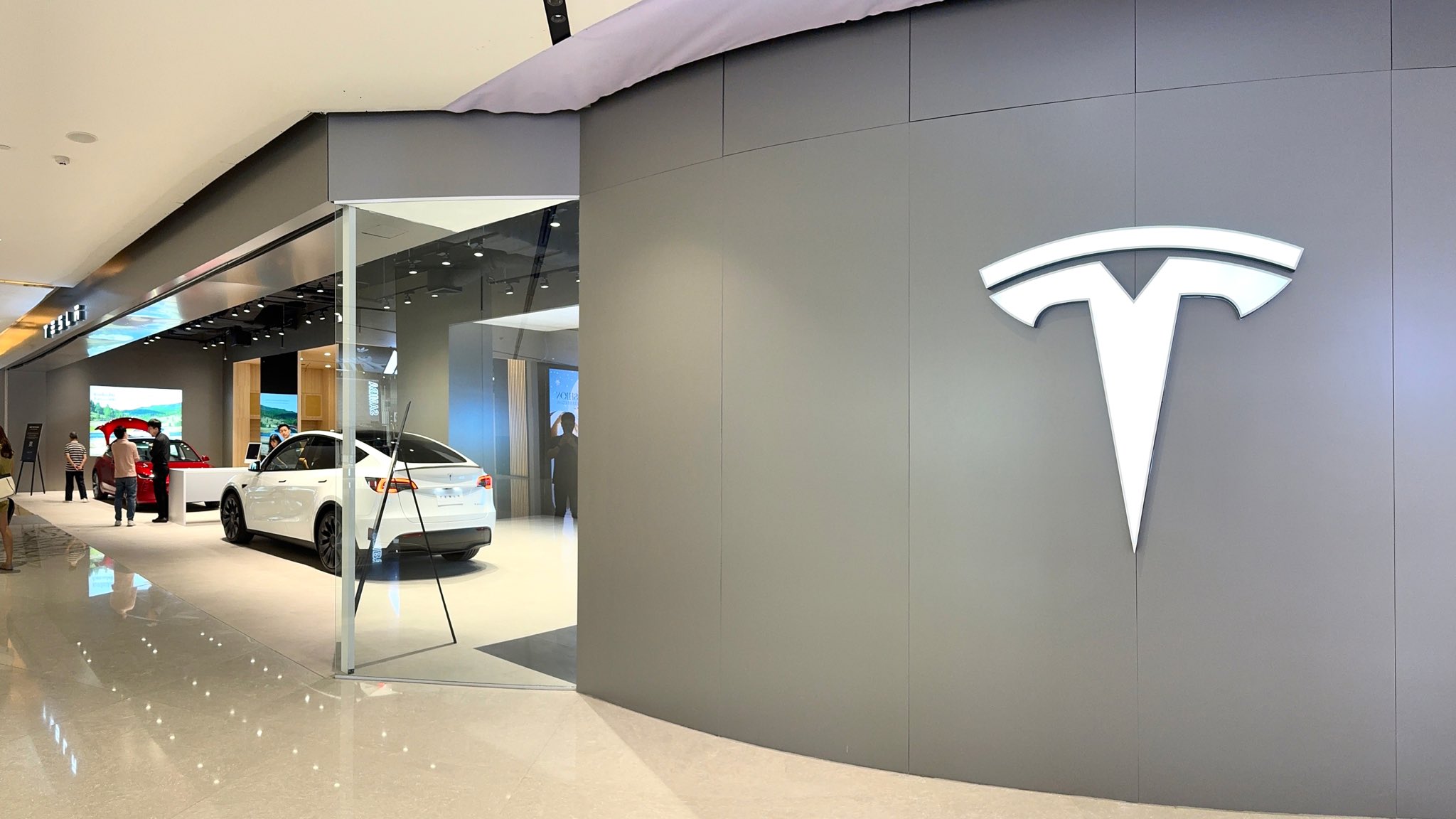
Oregon police are investigating a shooting incident involving a Tesla store.
A Tesla store in Tigard, a city southwest of Portland, was vandalized around 2:00 am on Thursday, March 6.
“The damage was discovered by employees who arrived for work this morning (3/6/25) at the dealership on SW Cascade Avenue. Investigators believe at least 7 shots were fired, damaging 3 cars and shattering windows. One bullet went through an office wall and into a computer monitor. Fortunately, this happened overnight when the property was unoccupied,” stated a Tigard Police report.
Crime scene technicians and investigators are gathering physical and video evidence of the shooting. Tigard Police did not officially announce a motivation for the shooting at the Tesla store. However, they acknowledge that a few Tesla locations have been targeted across Oregon and the nation.
Tesla locations across the United States and abroad have been experiencing attacks recently. Most of the company’s locations experience arson attacks. For instance, in France, around a dozen Tesla vehicles were reportedly torched in a suburb near Toulouse. Meanwhile, in Massachusetts, a few Tesla Superchargers were allegedly set on fire near a shopping center. Tesla protests have also started in various locations.
Police have not provided an official reason or motivation for all the arson attacks and the Oregon shooting because they are still under investigation. However, Elon Musk is definitely at the root of the matter.
Elon Musk has recently found himself the target of plenty of ire in the United States and Europe. Tesla is taking the brunt of all the anger pointed toward Musk.
-
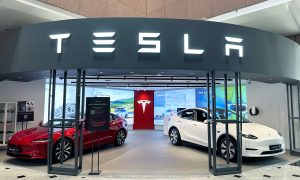
 News3 days ago
News3 days agoTesla at risk of 95% crash, claims billionaire hedge fund manager
-
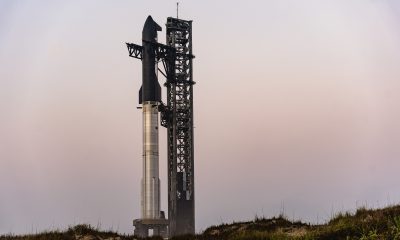
 News5 days ago
News5 days agoSpaceX announces Starship Flight 8’s new target date
-
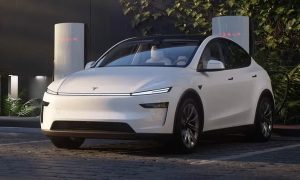
 News3 days ago
News3 days agoTesla contract with Baltimore paused after city ‘decided to go in a different direction’
-
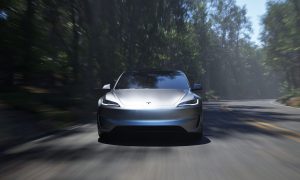
 News5 days ago
News5 days agoTesla launches fresh U.S. promotions for the Model 3
-
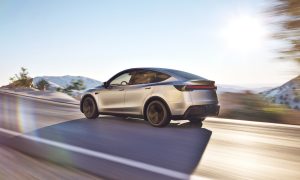
 Elon Musk6 days ago
Elon Musk6 days agoTesla mulls adding a new feature to fight off vandals as anti-Musk protests increase
-
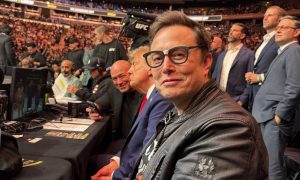
 Elon Musk4 days ago
Elon Musk4 days agoTesla UK sales up over 20% despite Elon Musk backlash
-
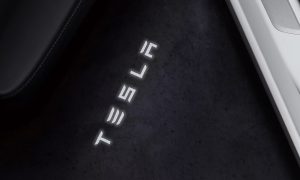
 News5 days ago
News5 days agoOne dozen Teslas burn in arson attack in France, investigation underway
-
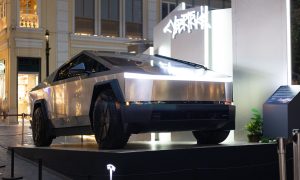
 Lifestyle4 days ago
Lifestyle4 days agoElon Musk seemingly confirms Cybertruck gift to 13-year-old cancer fighter




